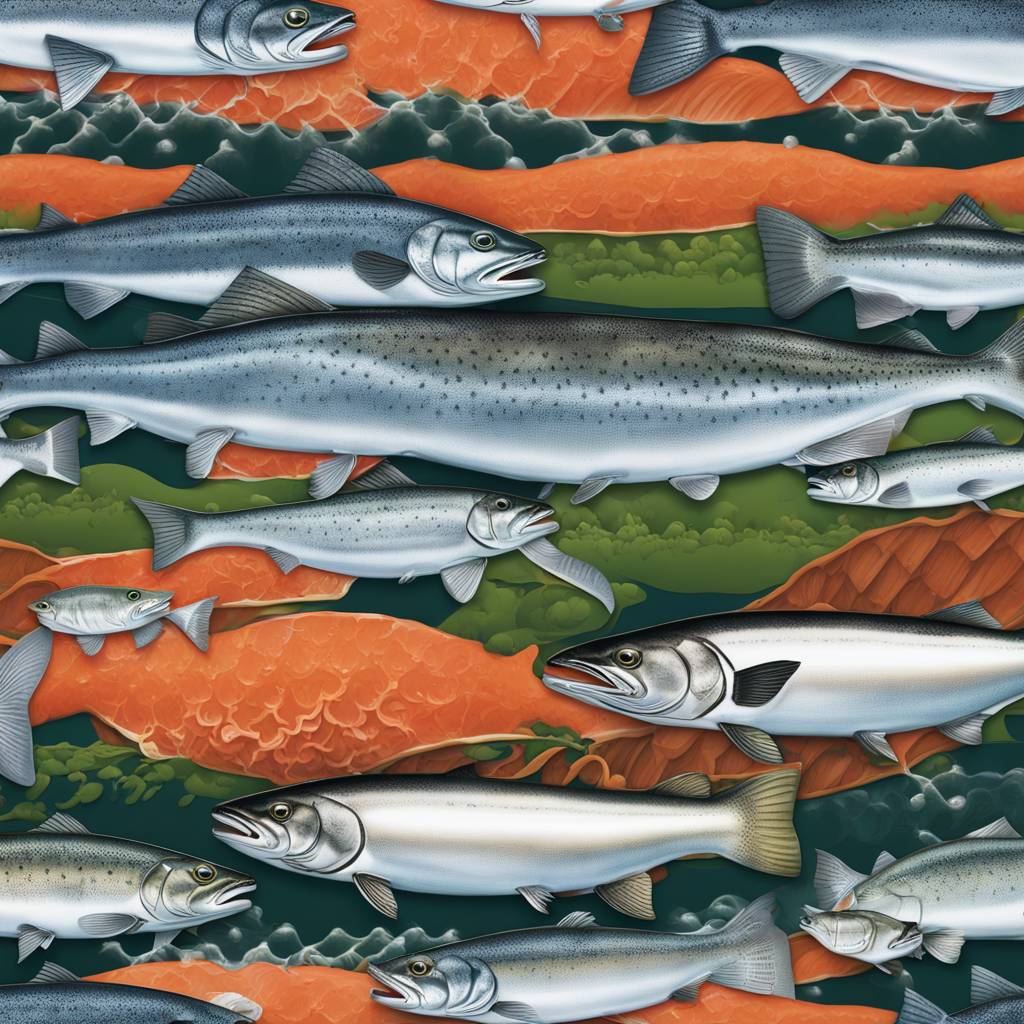Federal fishery managers canceled commercial and recreational salmon fishing off the coast of California for the second year in a row due to dwindling stocks. This decision was made to protect California’s waning salmon populations after drought and water diversions resulted in unfavorable river conditions for the state’s Chinook salmon to thrive. A February report found that in 2023, only 6,100 fall-run Chinook returned to the upper Sacramento River to spawn, significantly lower than the average in the past. The ban affects both commercial and recreational ocean fishing, with a recommendation to prohibit river fishing as well. The salmon population faces challenges such as rising river water temperatures, federal water protections rollback, and climate change impacts on food sources for young Chinook in the Pacific.
Scott Artis, the executive director of Golden State Salmon Association, criticized Governor Gavin Newsom’s water policy, blaming it for low river flows, unsustainable water diversions, high water temperatures, and salmon egg mortality. Artis expressed concern over the impact of these policies on the state’s natural resources and the salmon industry. The closure of salmon fishing off the California coast has a significant economic impact on the fishing industry, which supports tens of thousands of jobs in the state. The governor’s office did not immediately respond to comments regarding the closure.
Salmon caught in the ocean typically originate from California’s Klamath and Sacramento rivers. After hatching in freshwater, they spend three years maturing in the Pacific before returning to their spawning grounds to reproduce and die. California’s spring-run Chinook are listed as threatened under the Endangered Species Act, winter-run Chinook are endangered, and the Central California Coast coho salmon has been off-limits to commercial fishers since the 1990s. The closure of salmon fishing for consecutive years reflects the challenges facing these endangered or threatened salmon populations in California’s rivers and ocean.
The Pacific Fishery Management Council, responsible for setting Pacific salmon seasons, made the unanimous decision to cancel salmon fishing off the coast of California for the second consecutive year. This move is only the fourth time in the state’s history that such a decision has been taken. The council recommended that the California Fish and Game Commission consider extending the ban to river fishing. Drought, water diversions, and warm river conditions have impacted the Chinook salmon populations, leading to a significant decline in the number of returning fish in recent years.
The closure of salmon fishing in California has broader implications for the state’s fishing industry, which has already been reeling from the shutdown in the previous year. The decision highlights the fragile state of California’s salmon populations and the challenges they face due to environmental factors such as climate change and water management policies. The impact of these closures extends beyond the fishing industry to environmental conservation efforts aimed at protecting endangered and threatened salmon species. Continued monitoring and conservation measures are essential to ensure the long-term sustainability of salmon populations in California’s rivers and oceans.


